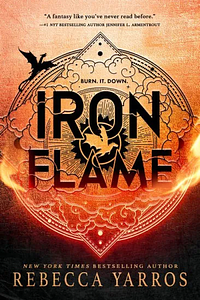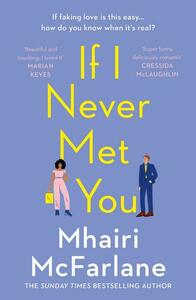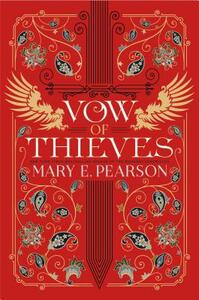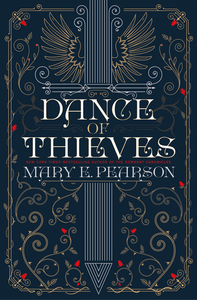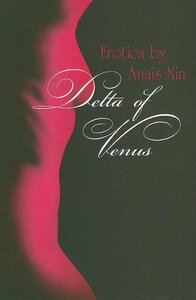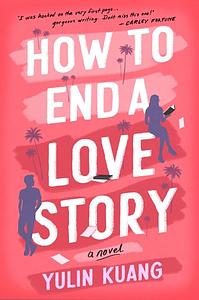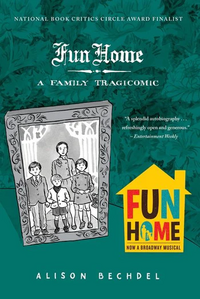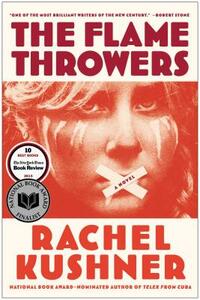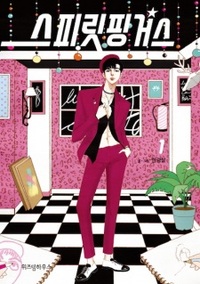Take a photo of a barcode or cover
documentno_is's Reviews (1.28k)
challenging
dark
emotional
funny
mysterious
reflective
sad
tense
fast-paced
Plot or Character Driven:
A mix
Strong character development:
No
Loveable characters:
Complicated
Diverse cast of characters:
No
Flaws of characters a main focus:
Complicated
Intro:
I think Norwegian Wood is a great novel to consume in pieces over a journey. It lends itself well to stopping and starting but connects its pieces to a gratifying whole. I don't necessarily find this work to be feminist or misogynist but gender roles do play a role in the overall story. I think if you go into this novel expecting it to be incredibly profound you may end up disappointed but if you go into it expecting a rough and depressing coming of age piece you may be delighted. Depression and suicide do play large parts in the thematic elements of this novel so if you'd rather not engage with those topics I'd recommend skipping this. Finally I do often see Norwegian Wood recommended as a romance novel and as a reader of this genre I would say romance is a tool in this novel for a greater thematic purpose but hardly the focus or even the feel of this work.
On grief & depression:
I love the way Murakami writes about depression and sorrow. He was really able to capture a lonely and alienating isolation for his characters that felt both very real and pointed. Other than explicitly referencing suicide, Murakami is great at describing the way characters manage to speak so closely to one another and miss connecting with one another, everyone is communicating and yet nobody is communicating or actually able to find commonality.I loved the Murakami talked about Naoko & the main character's different ways of experiencing grief after the death of Kizuki, especially in reference to loss of innocence and the feeling of having some vital experience of youth stripped away I found these passages very enlightening.
On sex:
The way Murakami writes about sex was intriguing but not entirely liberating. In some ways it is sort of counter to Japanese modern culture to give women agency when it comes to their sexual desire and I appreciate Murakami's attempts at doing this in this novel. However, I feel in this attempt Murakami also over-sexualized the women characters in this novel and they seem to sometimes be placeholders of the main character's abilities to connect (or lack of ability) throughout various points in this novel. I would say sex in this novel was used effectively but overused as a tool to further encompass the ways characters attempt to communicate in Norwegian Wood's lonely world. I think for my personal taste this book just had an overall horniness that I was not necessarily vibing with.
On references:
I think one of the hardest aspects of connecting to a translated work (especially one from a different period) are the use of references. Many of the authors and pieces of media that Murakami draws from in this novel are works that the average American reader would have experienced ad nauseam. It can be hard to connect with his frequent mentions of Fitzgerald and The Beatles when these references have become culturally trite. It is interesting how Murakami used the trope of reference to show how our interests can seek to connect us to the surrounding world, our friends, and sometimes even draw us away from society or culture at large.
In conclusion:
With the knowledge that this work is a departure from Murakami's usual style, I'm interesting in delving into his bibliography further. Murakami is a rather ubiquitous author so I'd heard many opinions of his writing (usually negative) and was glad to finally be able to form my own opinion. Overall, I wouldn't say reading this felt groundbreaking in anyway but it captured a vibe. Murakami seems to be an expert at conveying ennui and apathetic detachment in an ever changing world.
I think Norwegian Wood is a great novel to consume in pieces over a journey. It lends itself well to stopping and starting but connects its pieces to a gratifying whole. I don't necessarily find this work to be feminist or misogynist but gender roles do play a role in the overall story. I think if you go into this novel expecting it to be incredibly profound you may end up disappointed but if you go into it expecting a rough and depressing coming of age piece you may be delighted. Depression and suicide do play large parts in the thematic elements of this novel so if you'd rather not engage with those topics I'd recommend skipping this. Finally I do often see Norwegian Wood recommended as a romance novel and as a reader of this genre I would say romance is a tool in this novel for a greater thematic purpose but hardly the focus or even the feel of this work.
On grief & depression:
I love the way Murakami writes about depression and sorrow. He was really able to capture a lonely and alienating isolation for his characters that felt both very real and pointed. Other than explicitly referencing suicide, Murakami is great at describing the way characters manage to speak so closely to one another and miss connecting with one another, everyone is communicating and yet nobody is communicating or actually able to find commonality.
On sex:
The way Murakami writes about sex was intriguing but not entirely liberating. In some ways it is sort of counter to Japanese modern culture to give women agency when it comes to their sexual desire and I appreciate Murakami's attempts at doing this in this novel. However, I feel in this attempt Murakami also over-sexualized the women characters in this novel and they seem to sometimes be placeholders of the main character's abilities to connect (or lack of ability) throughout various points in this novel. I would say sex in this novel was used effectively but overused as a tool to further encompass the ways characters attempt to communicate in Norwegian Wood's lonely world. I think for my personal taste this book just had an overall horniness that I was not necessarily vibing with.
On references:
I think one of the hardest aspects of connecting to a translated work (especially one from a different period) are the use of references. Many of the authors and pieces of media that Murakami draws from in this novel are works that the average American reader would have experienced ad nauseam. It can be hard to connect with his frequent mentions of Fitzgerald and The Beatles when these references have become culturally trite. It is interesting how Murakami used the trope of reference to show how our interests can seek to connect us to the surrounding world, our friends, and sometimes even draw us away from society or culture at large.
In conclusion:
With the knowledge that this work is a departure from Murakami's usual style, I'm interesting in delving into his bibliography further. Murakami is a rather ubiquitous author so I'd heard many opinions of his writing (usually negative) and was glad to finally be able to form my own opinion. Overall, I wouldn't say reading this felt groundbreaking in anyway but it captured a vibe. Murakami seems to be an expert at conveying ennui and apathetic detachment in an ever changing world.
adventurous
challenging
tense
fast-paced
Plot or Character Driven:
Plot
Strong character development:
Complicated
Loveable characters:
Complicated
Diverse cast of characters:
Complicated
Flaws of characters a main focus:
Complicated
I don’t know why people pretend like Yarros is the worst writer to ever live, this was silly action fluff and I’ve read a million worse romance books (many this year.) That being said, this one was much weaker than the first of its series and spent an unbelievable amount of time swirling around to a rather lackluster ending. I’ll continue the series because I think it’s so ridiculous to read fantasy that would use terminology like “endgame” that it’s almost parody and I’m a completionist to my core.
emotional
hopeful
tense
fast-paced
Plot or Character Driven:
A mix
Strong character development:
Yes
Loveable characters:
Yes
Diverse cast of characters:
Yes
Flaws of characters a main focus:
Yes
As of this point point I’ve become quite familiar with Macfarlane and her writing and I’d say this one was par for the course. Not to discount her, she’s one of my favorite authors and I think this book had a lot of her best to offer. She has an incredible ability to write fluid dialogue and britishisms aside, it’s easy to fall into lace with her narratives and characters. Not my favorite and not the weakest, this is a great Macfarlane read if you’re a fan of hers.
adventurous
dark
fast-paced
Plot or Character Driven:
Character
Strong character development:
No
Loveable characters:
Complicated
Diverse cast of characters:
No
Flaws of characters a main focus:
Yes
Intent on tearing down everything she built with the previous in this series- no I know I'm being harsh but I did feel like this installment had some more serious flaws than the previous Thieves book but as the second book I expected Pearson to tighten in on the story she wanted to tell not to replicate it further ingrained in what wasn't working.
This could have just been one book and I really wish she had kept developing The Ballenger family and the magic system because just telling it through chapter intros and during their captivity was not enough. We really hones in on Jase and Kaz's story in this novel but I didn't really feel like they grew anymore within it. I was also still dealing from the conclusion of the last book where Pearson was really content to just tie a bow on it- almost as if she didn't expect the series to continue. To me everything after meeting the queen felt abrupt and unnatural and I couldn't believe that they went from literal *death of love* to resolution in ten pages after so much flip flopping.
adventurous
dark
inspiring
reflective
tense
fast-paced
Plot or Character Driven:
A mix
Strong character development:
Yes
Loveable characters:
Yes
Diverse cast of characters:
No
Flaws of characters a main focus:
Yes
Good lore, good plot, cheesy romance with not enough build up. Genre wise this is sold as a fantasy *with* romantic elements but the romance is surely the central plot point so if that's not what you're looking for skip this one.
The fantasy aspect was intriguing, I'm pretty excited with the world Pearson has built, although I'm not entirely convinced of her way of telling it (chapter beginning snippets outside of the central story.) Overall this was a quick and easy read that I breezed through so I feel like I can't be too critical.
I felt like the characters had clear voice, and the plot dragged a tad in the middle but all fantasy books tend to.
The fantasy aspect was intriguing, I'm pretty excited with the world Pearson has built, although I'm not entirely convinced of her way of telling it (chapter beginning snippets outside of the central story.) Overall this was a quick and easy read that I breezed through so I feel like I can't be too critical.
I felt like the characters had clear voice, and the plot dragged a tad in the middle but all fantasy books tend to.
dark
fast-paced
Plot or Character Driven:
Plot
Strong character development:
Complicated
Loveable characters:
No
Diverse cast of characters:
Yes
Flaws of characters a main focus:
Yes
It feels strange in some ways I feel like I’m rating text too high and in some too low, at its core as a selection of stories I can see both the relation and juxtaposition of the various themes but to some extent I’ve chosen to view them individually for the purpose of this review. Plainly, I can’t stomach some of them. I agree that Nina descriptions of sensuality, gender expression, and the erotic were revolutionary for her time and her influence on the romance genre is palpable. Yet, much of what she wrote disturbed me in ways I wasn’t prepared for and I can’t wrap my head around it.
The preface opens with a rather mean spirited notion that helps set the tone of the novel, Nin conveying to her donor essentially that he doesn’t understand eroticism and that its poetry that conveys the erotique. So what we are left with is an apparently barren onslaught of short stories written for a wealthy donor that Nin largely doesn’t respect. Having not read Nins other work I can only hope that this foray into the taboo is in large part to elicit some disdain from her donor as its subject matter in large part is less smut than snuff.
The preface opens with a rather mean spirited notion that helps set the tone of the novel, Nin conveying to her donor essentially that he doesn’t understand eroticism and that its poetry that conveys the erotique. So what we are left with is an apparently barren onslaught of short stories written for a wealthy donor that Nin largely doesn’t respect. Having not read Nins other work I can only hope that this foray into the taboo is in large part to elicit some disdain from her donor as its subject matter in large part is less smut than snuff.
The Hungarian Adventurer (0/5)
I’m choosing to interpret this as an incessant chase of desire, and of material pleasures leading to ruin. This chapter is horrifying, and a really stark beginning to this novel. I can in no way view this as “erotica” it is horror in its most grotesque and gory edifice. I feel like I’m reading Nabokov, if you catch my drift.
Mathilde (0/5)
I’m not even sure what this is supposed to be for? A cautionary tale of whom you spend your time with? I think I’m now fully aware that what is meant by erotica is horror, and it makes me less understanding of the preface written by Anais Nin, in that description is more erotic than mechanical action but yet the descriptions in this novel are horrifying. So far less erotics and more racist, dangerous, and violent.
The Boarding School (0/5)
Oh my.. god?
She’s certainly in competition with herself to be more taboo.
The Ring (2.5/5)
At least I can see how this one is erotica, I can understand that there is fantasy there “to be possessed” and the agency the woman finds in his jealousy. If the entire book was like this I could see the reverence for her as a master of description.
Mallorca (4/5)
Nin’s obsession with “high” breasts is becoming comical, actually. I digress, I did actually find this one quite erotic. The description, the sea, the desire between expectation, surprise, and reality. The agency of choice when Maria gives in to the event. I can actually understand the vision here.
Artists and Models (4/5)
*sigh* I mean… I suppose Nin herself is cuban but I can’t help but feel uncomfortable in her descriptions, relying on the exotification to make erotic; in the ways that a man appears in contrast to European that is how he is being made to found attractive but the experience of reading it feels exploitative. This novel had a tendency to really lean into the worst stereotypes of its era and yet I’m practically being hit over the head by academics trying to tell me it’s novel and progressive.
“Her desire died in her from sheer exhaustion” lmao that’s kind of how I feel trying to read this book.
There are things I liked about this story, I enjoyed the frame narrative the levels of telling from the artist and model in the room but then the actual subjects. The descriptions concerning the woman with the belt and her night with the man were incredible.
Mafouka’s story attempts to extol (with a certain distance) the desire of bisexuality. In a modern social lens that regards sexuality and gender in intentional choice this story approaches it with the practical interpretation of its time. Unlike Nins other stories I was not actually put off by the subject of desire in this tale, and its approach toward the subject matter (mostly) included consent and agency so I can understand the intention. This interpretation is sort of contingent on Mafouka’s agency and sets the tone for the final substory of this section- the frame of the narrative (sculptor and subject.)
The frame is about desire, suspense, and secrecy and how these facets come together to create an erotic narrative. Most interestingly I found this to be the most erotic story so far (and this likely to my taste- the most vanilla.)
Lilith (5/5)
This is actually what I was expecting when I began this novel. Lesbian desire held simply and the complete unfathomable anxiety of loving the man in your bed.
Marianne (5/5)
The trend of the male and female gaze, competing for one another and realization of each other’s desire. Their attraction ultimately capsized by the intrusion of society. I found this peace deeply sad and wonderfully erotic.
The veiled Woman (2.5/5)
Less enrapturing than Marianne but with the same general interest, voyeurism and interest in a single night of pleasure, unable to be continued. The pleasure dissipates and finally dies when realized and repeated amongst others.
Elena (5/5)
Casutz
This is very traditional erotica, similar to classic romance novels. The man’s reach out for consent was rather actually novel for its time, this is the vaguely feminist slant that I was desiring and searching for in this novel.
Paris
The next passages we embark on Elena falling madly but unwholy in love with Pierre and then how those jealousies eat her alive and awaken a passion of bisexuality in her. I love how much of a pick me Elena becomes “Leila was surely suffering from the mediocrity of the women she made love to “ and then goes on about how she despises the femininity of Leila’s lovers
Then when Elena finally cheats on Pierre she becomes obsessed with the idea of Pierre cheating, and thus leads to her forays into desire with others. Still in the end the push and pull of the game of desire with Pierre is most potent, and Pierre always lingers in the back of her mind.
I really liked this story, it felt the most fully realized and really gave the space and time to develop different characters and their relationships with each other. The desire of withholding in various means.
The Basque and the Bijou (3/5)
This is one of the longest stories in DdV and the plot is not as united or coherent as Elena although it does contain very similar elements such as painting, voyerism, and consent. I was enthralled in much of the imagery but there were threatening aspects, flaws in the text I couldn’t pass. There is an underlying exoticism that Nin is willing to engage with that may be “of her time” but doesn’t then allow me to engage in the text fully.
Pierre: 0/5
Jesus Christ here we go again. Pierre is disturbed, although I do appreciate how little concern for relationships Nin has, in a romantic sense.
That aside, Pierre is a reproachful character, despicable in a sense I can barely describe despite all the time Nin spent lifting him up in ‘Elena.’
Manuel 2/5
Genuinely I felt nothing about this and it felt over before it even began. Given the impact and taboo topics of the previous chapters this one really washed over me.
Linda 2/5
Some of the descriptions in this chapter are captivating but the story itself feels unfinished. Linda never quite earns agency of her desire she only waffles in relative discomfort hoping to be satisfied.
Marcel 3.5/5
I felt like this story really encapsulated the best parts of this collection, even if it was a little banal. The ending passages were a perfect lead up to a conclusion but it felt like some of the space in the middle was taken up.
Am I glad I read this ? Not sure, maybe if I had known some of what to expect I could have been prepared for the horrors that lied ahead.
Am I glad I read this ? Not sure, maybe if I had known some of what to expect I could have been prepared for the horrors that lied ahead.
dark
emotional
funny
hopeful
reflective
fast-paced
Plot or Character Driven:
A mix
Strong character development:
Yes
Loveable characters:
Yes
Diverse cast of characters:
Yes
Flaws of characters a main focus:
Yes
This is a fluffy romance but I feel like it’s the best of the genre right now. This is the bar, and I feel like over the last decade contemporary romance has fallen further and further Into wattpad level fanfic so to read a book this well written came off as a surprise.
This novel is about two characters who share a traumatic event together trying to decide if their passion is circumstance or “real.” I really enjoyed the chemistry, the smut was well written and actually erotic, and the characters themselves were well rounded and dynamic. I generally find that enemies to lovers trope is a watered down cesspool of romance with guy that is mean but this was very much the opposite of that, where their circumstance created the environment that made them enemies but that both characters were sympathetic. This was a really good example of a writer using a trope to further engage with a reader rather than allowing the trope to dictate the novel. My only hesitance in giving it a perfect best stars was that, in spite of the name of the novel, I found the ending rather tepid.
I’ve read a lot of books this year about writers using the industry of writing as a trope/ setting but found it was done pretty well here.
I’ve read a lot of books this year about writers using the industry of writing as a trope/ setting but found it was done pretty well here.
dark
emotional
funny
hopeful
informative
reflective
sad
fast-paced
At first I wondered if the telling of this narrative as a comic rather than simply in text wasn’t an act of cheapening what is mostly serious subject matter ( as much as Bechdel suggests this is a comedy I can’t quite grasp any humor outside of comedy in a literary sense.) However, by the third act I had largely adapted to the comic delivery and find myself along for the ride in Bechdel’s musings which are often insightful, damning, and extremely referential. Some references are pervasive, and some are as simple as showing Bechdel masturbating to Delta of Venus by Anais Nin. In this autobiography Bechdel uses Fitzgerald and Camus most often as jumping off points as connections to her father as well as paralleling their stories with her autobiographical source material in theme and literal plot.
Much of the novel is gut-wrenching, the way Bechdel infuses her lived experience with the story of the contrast of her closeted father both enlivened and breaks down the narrative. Bechdel acknowledges that this chronicle of her father’s history is almost all supposed- as in his death she can no longer ask him. One of the most gripping moments throughout was when Bechdel and her father sit in the car on the way to the movie- the reader knows with great sadness (but a complicated sadness of course) that her father will be dead soon but we watch Bechdel’s first attempts to connect to her father in his entirety not just as a parent but as a gay man to a gay daughter. The reader is stricken by the lack of resolution and Bechtel’s comparison of them to characters in Ulysses is apt.
Much of the underlying interest that drew me into this comic was the inclusion of gender discourse in the explicit expression of sexuality and how those agencies relate. Societally we are at a place where we are asked consistently (at least in an academic perspective) to view gender (and its expression) and sexuality through separate but related lenses but sometimes in individuals (such as in the case of Bechdel but also transparently in the case of myself) the actual expression of gender alludes more to sexuality than anything else. Discovering masculinity as a way to signal identity in oppressive spaces is a formative early queer experience and it was validating to read this experience (maybe for the first time) in what is largely a critically acclaimed popular novel. The experience of reading Fun Home was a satisfaction of an eventuality. I’d long heard of Bechdel’s thoughts and seen many excerpts from comics of hers (many of which back in the days of Tumblr) so I was glad to finally engage in material I’ve always existed adjacent to.
Much of the underlying interest that drew me into this comic was the inclusion of gender discourse in the explicit expression of sexuality and how those agencies relate. Societally we are at a place where we are asked consistently (at least in an academic perspective) to view gender (and its expression) and sexuality through separate but related lenses but sometimes in individuals (such as in the case of Bechdel but also transparently in the case of myself) the actual expression of gender alludes more to sexuality than anything else. Discovering masculinity as a way to signal identity in oppressive spaces is a formative early queer experience and it was validating to read this experience (maybe for the first time) in what is largely a critically acclaimed popular novel. The experience of reading Fun Home was a satisfaction of an eventuality. I’d long heard of Bechdel’s thoughts and seen many excerpts from comics of hers (many of which back in the days of Tumblr) so I was glad to finally engage in material I’ve always existed adjacent to.
Graphic: Suicide
adventurous
challenging
dark
funny
informative
mysterious
reflective
sad
tense
fast-paced
Plot or Character Driven:
A mix
Strong character development:
Yes
Loveable characters:
Complicated
Diverse cast of characters:
Yes
Flaws of characters a main focus:
Yes
There are a variety of interconnected stories in the flamethrowers and ill be trying to look at them both in isolation and unity.
Reno
Reno is an incredibly sympathetic protagonist, but I never found her pitiable. She is too young to experience what she does, and the men she surrounds herself with take advantage of her and then resent her for letting them. Meanwhile she tries to reclaim some power, and what results is story. Reno is also early on used as a tool to show us what women are allowed in these worlds. What they have to face and what they have to suffer- it is not enough to acknowledge 'ah yes they were oppressed' you had to look to others in ways to free yourself and potentially end up damning yourself to pain in the end.
(Older & Younger) Valera
The Motherfuckers
The book in general
The book has a visual quality to it, outside of literally being peppered with inspirational images the prose is very visual, it is sometimes more concerned with *the scene* than what lays behind it. Sometimes there is this feeling that the author is setting up a visual play, and the reader is guided where to look scene by scene. Some scenes that really rang this true was Ronnie observing the protagonist, or when Sandro cheats on her in the Valera plant.
Made to burn. A running theme, and the through line of the novel. The Motherfuckers attempting to burn it all down. The literal burning of rubber, manufacturing and riding motorcycles. The violence of war. The burning of self, faced with one's past.
The role of women
The women in this book are oppressed, the author is clear about wanting us to see this and every interaction with a man reminds of this. The women can choose, to use this oppression to their advantage in some way or to remain in subservience. They are not respected and they are dismissed. The novel largely surrounds the 70’s art world and canonically it was, as most eras of art, completely dominated by men so I found this appropriate for the storytelling.
History
It was clear that Kushner finds more importance in the storytelling of The Flamethrowers than the historical accuracy, and almost ironically jokes about this throughout the novel in snippets surrounding “the things Ronnie says don’t have to be true.” The importance of the telling in conceptual art, when sometimes the telling is moreso the art than whatever physical manifestation is left behind. Lying is fine as long as the story is interesting, and everything is done for the plot. This artistic is a movement, both against fascism but contrastingly it can’t be because it is also bourgeois. The lies that matter and the lies that don’t largely depend on the context of the situation and the novel presents us with various examples.
The lies that don’t matter: The phoniness and veneer of the art world, the stories that people construct of themselves
The lies that matter: when engaging in revolutionary political act, when cheating (?)
The novel has a nice push and pull between this idea of veneer and reality, of innocence and maturity, of choosing to believe or choosing to not see.
The lies that don’t matter: The phoniness and veneer of the art world, the stories that people construct of themselves
The lies that matter: when engaging in revolutionary political act, when cheating (?)
The novel has a nice push and pull between this idea of veneer and reality, of innocence and maturity, of choosing to believe or choosing to not see.
The novel largely is concerned with the events in NYC and Italy (Milan, Rome) in the ‘60s and how those two locations related to one another. Reading Kushner’s afterword about naked women and guns while also having read the defining modernist essay by Clement Greenberg one can start to place this novel in time and place. The setting of NYC with the parties so mentioned, knowing Andy Warhol is beginning to create pop art while purists like Serra rely on fervent masculinity a la Pollock to create and sell work. I think we are meant to draw many parallels between Serra and Valera specifically. In this way I also can appreciate this novel as a sort of abstract expressionist fan-fiction. I love the way Kushner uses historical knowledge of the reader to enhance the work, but is completely willing to change aspects of the story to suit the novel’s needs.
Conclusion
I found the Flamethrowers incredible, memorable, and sympathetic. I appreciated already having the art history knowledge to guide me in reading.
funny
hopeful
lighthearted
medium-paced
Plot or Character Driven:
Character
Strong character development:
Yes
Loveable characters:
Yes
Diverse cast of characters:
No
Flaws of characters a main focus:
Yes

